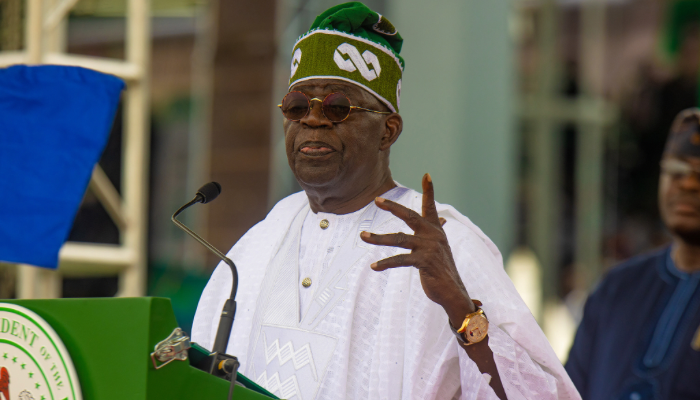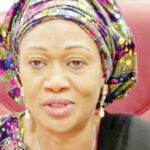The expectations of President Tinubu are low, but that does not mean Nigerians and the global economy are not eager to see the Nigerian economy becoming more stable. The country experienced two recessions, high inflation, Naira devaluation and dwindling foreign reserves. There is also a rising public debt, estimated by the DMO to be 37 per cent of the GDP.
The global cost of borrowing is rising, which makes potential borrowing more expensive. The purchasing power of goods and services is reducing, putting pressure on other economic and socioeconomic challenges. The fall in oil prices also added to the woes of Africa’s largest economy.
It goes without saying; economic reforms need to be implemented, and cutting the cost of governance must be a priority. The effort made by President Tinubu to bring economic stability to Nigeria is commendable, but more short-term policies are required to get the country out of its fiscal worries.
As the administration continues to consider other ways to increase, It must also begin to look at ways to cut costs. Reducing the cost of governance is not the only issue to address. However, it is important to acknowledge that it has serious implications for the country’s economic development and social welfare.
Four Reasons You Should Reject Fake News And How To Identify It
Hakeem Odumosu says appointment as EFCC Chairman is fake news
It is common knowledge that Nigeria’s governance cost has greatly increased despite the claims made by the last government. Nigeria is facing a serious problem of misallocation of public funds. According to the World Bank, 96 per cent of the country’s revenue was spent on debt servicing in 2022, leaving little for development and social services.
The contributing factors are numerous. The unnecessary increases in government agencies, unjustified purchases of luxury goods and services, and the jumbo pay paid to political officeholders to sponsor their extravagant lifestyles. Government officials are living lavishly at the expense of the taxpayers.
The funding of the presidential fleet rose to N81 billion under Buhari, while the Senate president and the state governors allocated huge budgets for their cars and private jet rentals. Instead of holding meetings in Nigeria, they prefer to travel abroad with many aides, wasting state resources.
Payroll fraud due to ghost workers is more common across the sub-national governments, as seen in Kano. The sponsorship of civil servants for studies in foreign universities is another example of how public funds are diverted from more pressing needs. Sponsorship of people to the holy lands of Jerusalem and Makkah on various occasions is rarely justified, with one person spending billions of Naira for family and friends to travel on state expenses.
The provision of police officers to guard VIPs is a misuse of resources that could be used to enhance security for all citizens. The IGP recently announced the withdrawal of police officers from VIPs, but this happened in 2015, 2018 and 2020 with very little effect.
These occurrences, and many like them, have reduced the proportion of public revenue available to support growth-inducing services and infrastructural development and have contributed to poverty, corruption, insecurity, and poor service delivery. Therefore, a new model of governance that will reduce costs and ensure accountability and transparency is a necessity for the economic stability of the country.
There are good global practices that can be adopted if understood objectively. Understanding is required as the previous governments attempted to copy programmes that failed because of a lack of comprehension.
For example, India introduced e-governance in administration to reduce the cost of running its government. It enhanced citizen participation and feedback and reduced corruption and waste. The United Kingdom implemented a series of reforms to reduce the size and cost of its civil service in 2010. The reforms resulted in significant savings and improved productivity for the government.
Canada adopted a whole-of-government approach to reduce duplication and overlap in its federal programmes and services. The approach enabled the government to deliver better results for citizens and stakeholders.
Some reports show Nigeria’s security situation has worsened over the past eight years, despite huge spending on security personnel and equipment. With the new NSA in office, this administration can begin auditing the security budget allocation of its predecessor and examine its implementation. This will help identify inefficiency, corruption, and mismanagement and ensure that funds are used effectively and transparently to address the country’s security challenges.
The administration can strengthen public financial management reforms, such as the Fiscal Responsibility Act, the Medium Term Expenditure Framework, and the Treasury Single Account, at both the federal and state levels. These reforms will help improve fiscal discipline, accountability and transparency and reduce wasteful spending and leakages.
The administration should also enforce penalties for non-compliance and reward best practices.
The government must adopt a whole-of-government approach to avoid duplication and overlap in its programmes and services in ministries like agriculture, where farm inputs are allocated to farmers. It means aligning strategic outcomes, consolidating common functions, simplifying processes and reporting, and fostering collaboration and innovation among public servants. This will help the government deliver better results for citizens and stakeholders.
Reducing the number and pay of political officeholders and their aides can also be a positive approach. This will save money for development projects. Tinubu has done well to reject increasing political officeholders’ salaries.
It should also reduce the number of presidential aeroplanes, ensure that official vehicles are not misused and limit foreign trips by using online meeting platforms.
Of course, these reforms will not be easy to implement without political will, stakeholder engagement, and citizen participation. But we must acknowledge that the future of Nigeria depends on the actions of its leaders and citizens today.

 Join Daily Trust WhatsApp Community For Quick Access To News and Happenings Around You.
Join Daily Trust WhatsApp Community For Quick Access To News and Happenings Around You.


